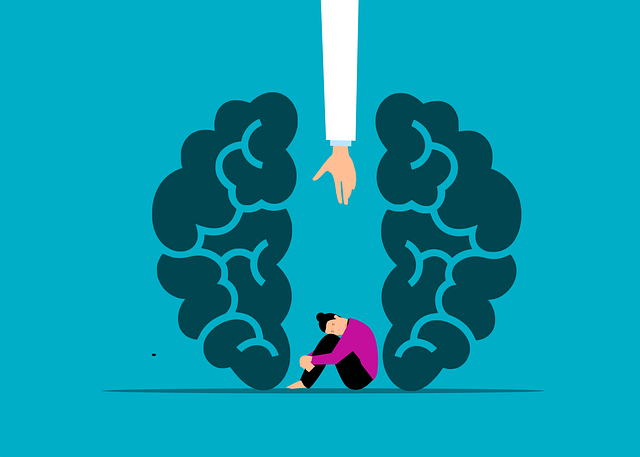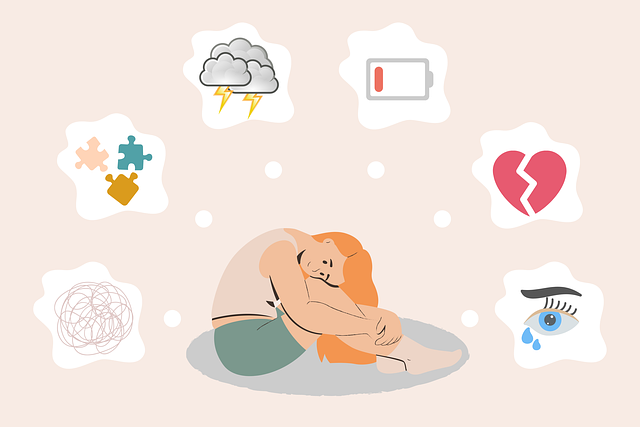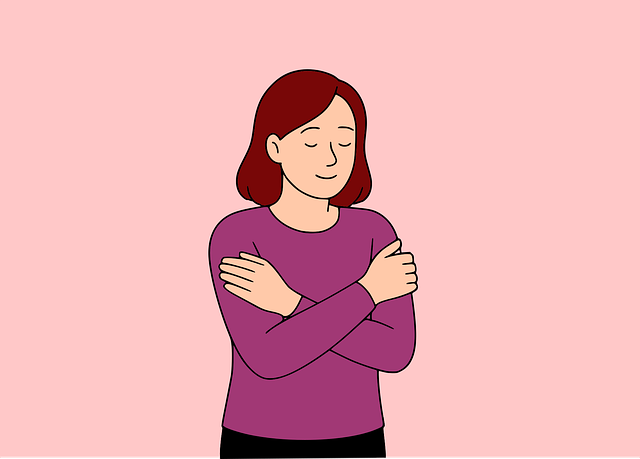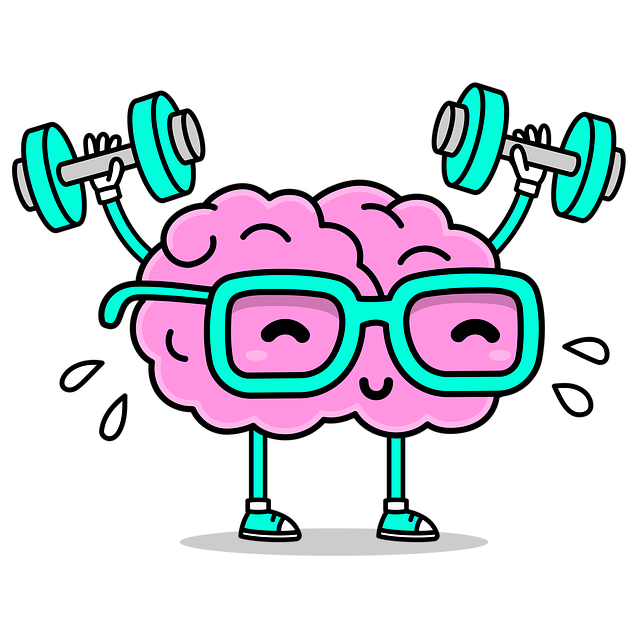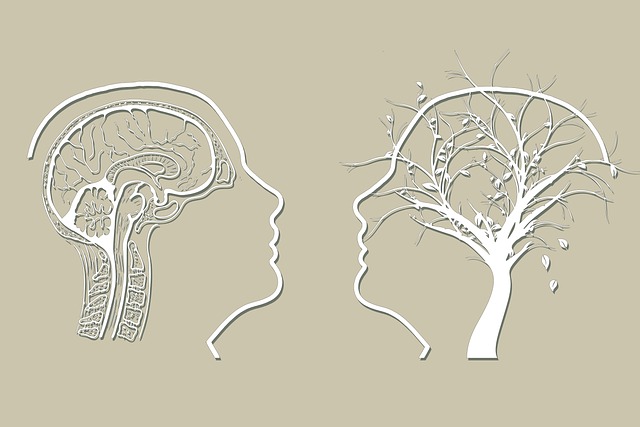Westminster Trauma Therapy emphasizes early depression prevention through open mental health conversations and education. They aim to empower individuals to recognize signs like persistent sadness, changes in appetite and sleep, and develop coping skills. Their pioneering approach addresses root causes of depression, particularly past trauma, using evidence-based techniques like CBT and mindfulness. By fostering safe spaces for memory processing, promoting healthier habits, and building support networks, they enhance overall mental wellness and prevent depressive episodes. Seeking professional help at Westminster Trauma Therapy offers specialized trauma therapy, tailored treatment options, and recovery support.
Depression is a prevalent yet complex condition, affecting millions worldwide. This article explores comprehensive strategies for prevention, offering valuable insights into recognizing the signs and symptoms of depression. We delve into innovative approaches like Westminster Trauma Therapy, highlighting its role in empowering individuals to combat emotional challenges. Additionally, we discuss lifestyle changes, building support networks, and seeking professional help, providing a holistic guide to maintaining mental well-being.
- Understanding Depression: Recognizing the Signs and Symptoms
- The Role of Westminster Trauma Therapy in Prevention
- Lifestyle Changes for a Healthier Mindset
- Building a Support Network: The Power of Connection
- Professional Help: When to Seek Support and Treatment Options
Understanding Depression: Recognizing the Signs and Symptoms

Depression is a complex mental health condition that affects millions worldwide. Recognizing its signs and symptoms is the first step towards prevention. At Westminster Trauma Therapy, we emphasize the importance of early intervention to mitigate the risks associated with this debilitating disorder.
Individuals experiencing depression may exhibit persistent feelings of sadness, hopelessness, or loss of interest in activities once enjoyed. Changes in appetite, sleep patterns, energy levels, and concentration are also common indicators. Moreover, physical symptoms like fatigue, headaches, or digestive issues might accompany these psychological markers. Encouraging open conversations about mental health and fostering an environment where individuals feel comfortable seeking help is paramount in the prevention process. Through our Mental Wellness Podcast Series Production, we aim to educate and empower folks on coping skills development and stress reduction methods, ultimately contributing to enhanced mental wellness.
The Role of Westminster Trauma Therapy in Prevention

Westminster Trauma Therapy offers a unique and effective approach to depression prevention by addressing its root causes. This therapeutic method recognizes that many individuals grappling with depression have experienced trauma, whether in childhood or adulthood. By focusing on traumatic events and their impact, Westminster Trauma Therapy facilitates healing and empowers people to develop healthier coping mechanisms. Through this process, individuals can enhance their emotional resilience and overall well-being.
Incorporating evidence-based techniques, such as cognitive behavioral therapy (CBT) and mindfulness practices, this approach targets not just the symptoms but also the underlying issues. By fostering a safe space for clients to explore and process traumatic memories, Westminster Trauma Therapy encourages self-care practices and promotes emotional well-being. Moreover, it contributes to broader mental health policy analysis and advocacy by highlighting the importance of trauma-informed care in prevention strategies, ensuring that individuals receive comprehensive support tailored to their unique needs.
Lifestyle Changes for a Healthier Mindset

Adopting a healthier lifestyle is a powerful tool in the prevention of depression. Simple yet profound changes can significantly impact mental wellness. Regular exercise, for instance, releases endorphins that boost mood and reduce stress. Aiming for 30 minutes of physical activity most days can be a game-changer, whether it’s a walk in nature, joining a yoga class, or playing sports with friends. A balanced diet is also essential; incorporating nutrient-rich foods improves brain function and energy levels. Reducing caffeine and alcohol intake can help regulate sleep patterns, which play a crucial role in mental health.
Additionally, prioritizing quality sleep and managing stress are key. The peaceful respite of a good night’s rest allows the mind to rejuvenate. Techniques like meditation or mindfulness practices can offer much-needed calm and clarity. Westminster Trauma Therapy suggests exploring these strategies as a proactive approach to mental wellness, complementing treatments like Social Skills Training for enhanced anxiety relief.
Building a Support Network: The Power of Connection

Building meaningful connections is a powerful tool in the fight against depression. A strong support network can provide individuals with a sense of belonging and purpose, two essential aspects of mental wellness. At Westminster Trauma Therapy, we understand that human connection is vital for navigating life’s challenges. Encouraging people to reach out and build their support system can be transformative, offering a safe space to share experiences, gain different perspectives, and learn valuable conflict resolution techniques.
This network can take various forms—from close friends and family to support groups or even community organizations focused on mental health awareness. By participating in Stress Management Workshops offered by such entities, individuals can acquire practical tools for managing stress and improving their overall Mental Wellness. These connections foster a sense of community, reducing feelings of isolation often associated with depression, and providing a system of support that can help prevent the onset or escalation of depressive episodes.
Professional Help: When to Seek Support and Treatment Options

When facing persistent feelings of sadness, hopelessness, or loss of interest, it’s crucial to recognize when professional help is necessary. The journey towards depression recovery often begins with a simple step: reaching out for support. Many individuals benefit from consulting mental health professionals who specialize in trauma therapy, such as those offered by Westminster Trauma Therapy. These experts can provide an accurate risk assessment for mental health professionals, ensuring a comprehensive understanding of one’s emotional state and any potential risks.
Treatment options are diverse and tailored to individual needs. This could include psychotherapy, cognitive-behavioral therapy (CBT), or mindfulness meditation techniques to build resilience. Depending on the severity and underlying causes, medication might also be prescribed under professional supervision. Remember, seeking help is a sign of strength, and with the right support, managing and overcoming depression is achievable.
Depression prevention is a multifaceted approach, encompassing understanding, early intervention, and proactive strategies. By recognizing signs, exploring therapeutic options like Westminster Trauma Therapy, adopting healthy lifestyles, fostering connections, and knowing when to seek professional help, individuals can effectively navigate mental health challenges. These integrated methods empower folks to build resilience and cultivate a more balanced mindset.
